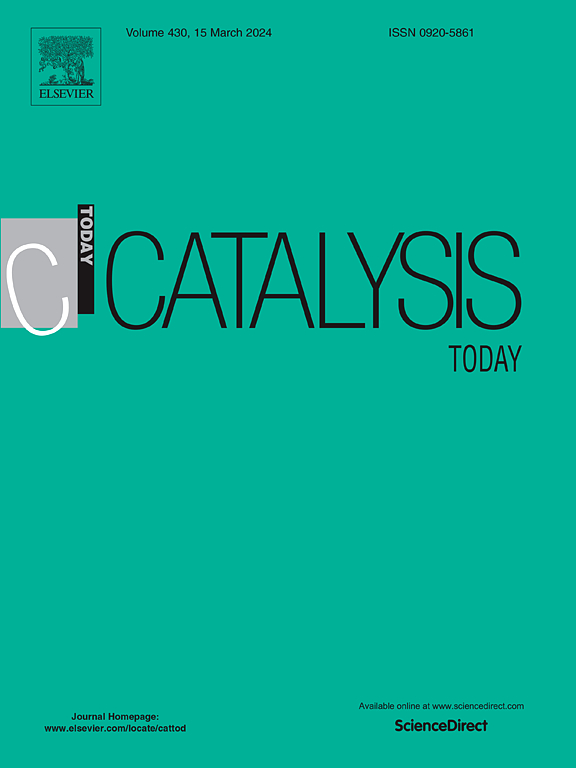从生物质衍生化合物中生物催化合成香兰素:综述
IF 5.2
2区 化学
Q1 CHEMISTRY, APPLIED
引用次数: 0
摘要
香兰素是一种重要的调味化合物,通常通过天然提取或化学合成获得。然而,天然提取的香兰素供应不足以满足日益增长的需求,而化学合成的香兰素在食品和香水等各行业中的使用也因日益增长的健康和环境问题而受到限制。有鉴于此,生物催化利用分离的酶或整个细胞作为生物催化剂,为解决这些新出现的挑战提供了广阔的前景。最近,以生物质衍生化合物为前体进行香兰素生物催化合成的研究越来越受到关注。本综述旨在讨论通过生物催化过程从各种可再生生物质基底合成香兰素的最新进展。综述了最近发现的用作生产香兰素的生物催化剂的各种酶或重组细胞。此外,还讨论了用于提高香兰素生产生物转化效率的蛋白质工程和构建酶级联反应的不同策略。本文章由计算机程序翻译,如有差异,请以英文原文为准。
Biocatalytic synthesis of vanillin from biomass-derived compounds: A review
Vanillin is an important flavoring compound commonly obtained through natural extraction or by chemical synthesis. However, the supply of naturally extracted vanillin is insufficient to meet the growing demand, and the utilization of chemically synthesized vanillin in various industries such as food and perfume is constrained due to growing health and environmental concerns. In light of this situation, biocatalysis offers promising perspectives to tackle these emerging challenges by employing either isolated enzymes or whole cells as biocatalysts. Recently, the biocatalytic synthesis of vanillin using biomass-derived compounds as precursors has been attracting increasing attention. This review aims to discuss recent advances in the synthesis of vanillin from various renewable biomass-based substrates through biocatalytic processes. A variety of recently discovered enzymes or recombinant cells used as biocatalysts for the production of vanillin are summarized. In addition, the protein engineering and the different strategies of constructing enzymatic cascade reactions applied to improve the bioconversion efficiency in vanillin production are also discussed.
求助全文
通过发布文献求助,成功后即可免费获取论文全文。
去求助
来源期刊

Catalysis Today
化学-工程:化工
CiteScore
11.50
自引率
3.80%
发文量
573
审稿时长
2.9 months
期刊介绍:
Catalysis Today focuses on the rapid publication of original invited papers devoted to currently important topics in catalysis and related subjects. The journal only publishes special issues (Proposing a Catalysis Today Special Issue), each of which is supervised by Guest Editors who recruit individual papers and oversee the peer review process. Catalysis Today offers researchers in the field of catalysis in-depth overviews of topical issues.
Both fundamental and applied aspects of catalysis are covered. Subjects such as catalysis of immobilized organometallic and biocatalytic systems are welcome. Subjects related to catalysis such as experimental techniques, adsorption, process technology, synthesis, in situ characterization, computational, theoretical modeling, imaging and others are included if there is a clear relationship to catalysis.
 求助内容:
求助内容: 应助结果提醒方式:
应助结果提醒方式:


